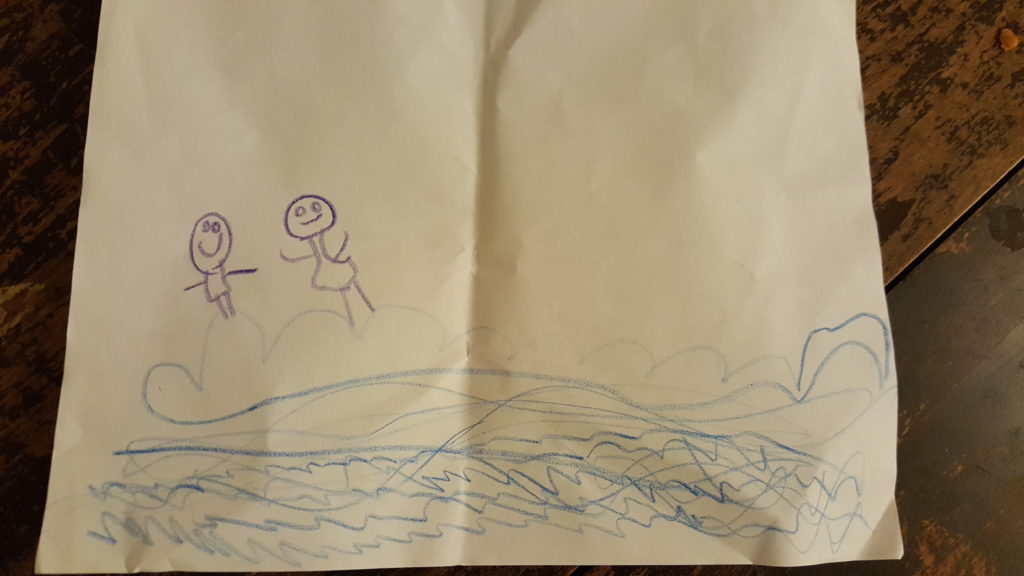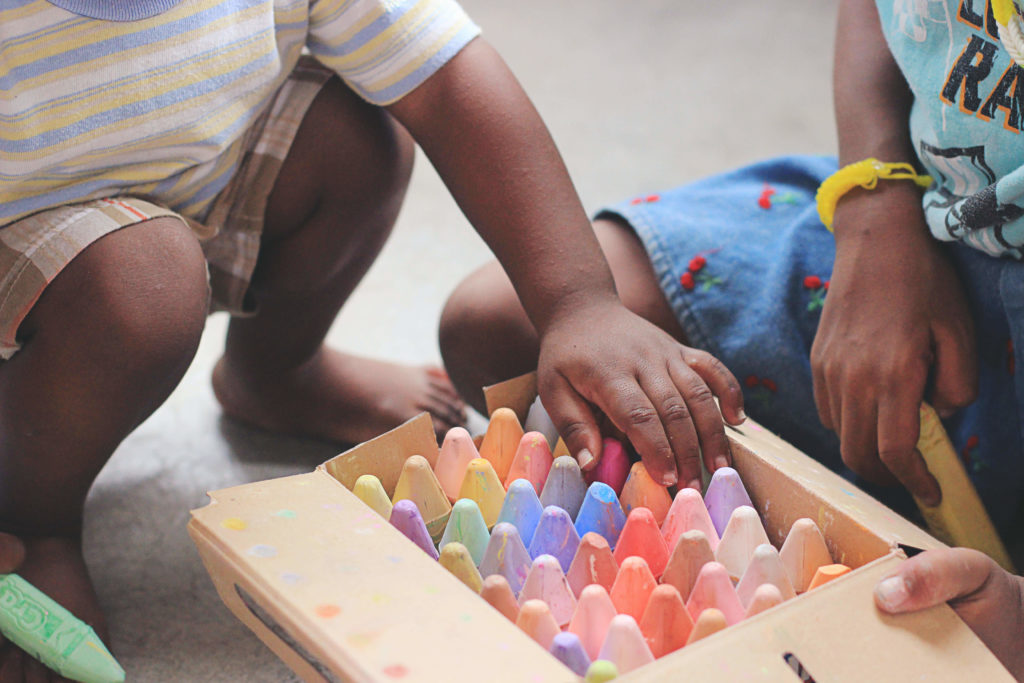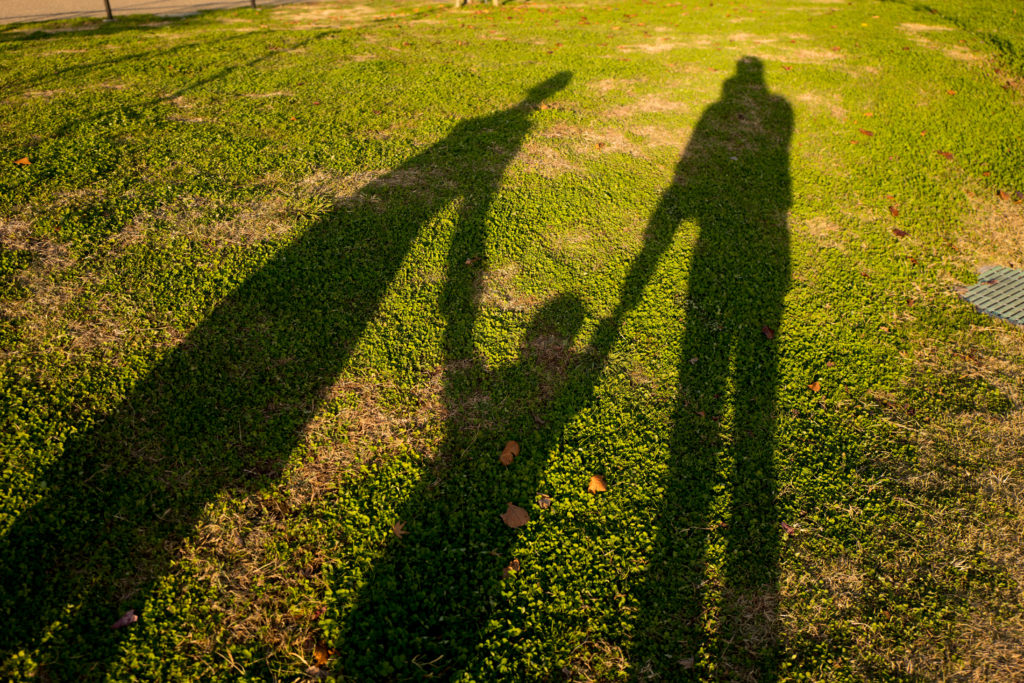“How do you buy a house in America?”
She passed me her phone displaying the question in English beneath the Arabic words. My fingers hovered over the keyboard on my phone as I considered how to reply.
The woman and her daughter sat next to me in a stuffy upper room of an old church, newly arrived in the United States, refugees from Iraq.
Iraq. The place I read about in the news. The place where, even as we sat safe and secure in a city building, is at war. The place my husband spent a year on a military base. A place I can’t begin to imagine.
“America is beautiful,” she told me as we earlier tried to talk about what she spent money on Iraq. Our poor attempt at communication left me with the understanding that she hadn’t needed to pay for much. Or that there wasn’t much she could buy anyway. Maybe I misunderstood.
“You need to get a loan from a bank,” I finally typed back on my phone, the Arabic characters displaying on my screen in what I hoped was a clear answer.
“How do you get a loan?” she typed in reply.
I typed out a short answer about applying to the bank, paying bills on time and having a good job.
“Houses cost a lot of money,” I typed. “Thousands of dollars.”
She pressed me for how many thousands so I ventured a guess, one that disheartens me. I underestimated by a lot, knowing that even a low number could be discouraging. We calculated the equivalent in Iraqi dinar, an incomprehensible amount to my brain.
“Ah. Okay,” she said.
And that was that.
—
A lot of the refugees I meet have this goal: to buy a house of their own. They rent houses and apartments in our city and many of them dream of getting out into the country.
Confession: I am not unlike them. Phil and I will be married 10 years next year and we have rented apartments or homes in that entire time.
I want to buy a house. And even to us, it seems almost out of reach. Income is one of many factors, and we have one full-time job and one part-time job in our household. I don’t know if I’ve ever truly latched on to The American Dream, and if I have it seemed a reasonable goal. Shouldn’t getting an education and working hard lead to dreams come true? (I know it’s more complicated than that.)
I wonder how this American Dream in the Land of Opportunity looks to refugees. And how does it live up to their expectations? How does it fail?
One of the most common observations refugees make about our country is how expensive everything is. Here, we pay for a house, utilities, transportation, food, clothing, Internet. It is not the same in these countries, and sometimes that is because of life in the refugee camps, where food and clothing are provided through humanitarian organizations and other things are unavailable or also provided in limited quantity.
The closest comparison I have is when I moved into my first apartment after college back in my hometown. Until that time, most of what I needed had been provided by my parents. We didn’t have a lot but we always had enough. Less than a year after starting my first full-time job, I was in an apartment with a roommate and my very own bills to pay. It can be a bit of shock to discover what it costs to heat a home or use electricity or gas up the car.
—
It is not only refugees who face these kinds of circumstances. I know legal immigrants who live here and cannot find jobs in their field so they end up working second shift cleaning a school or housekeeping at a hotel. Or they have a legitimate background in a scientific field but cannot find anyone to hire them. Some of the refugees have medical backgrounds. They teach us when we try to teach them about disease prevention.
Sometimes there is a language barrier, sure, and sometimes it is a scheduling problem with childcare or the school day.
So, I wonder sometimes if the American Dream is a letdown.
Maybe we oversell it.
I love the opportunities we have in this country and I love that we are mostly a land where children can go to school in safety. Where we do not have to worry about bombs falling in our neighborhoods or dictatorial rulers. I think we have a lot to offer people from other countries where this is not the case.
I just think maybe we need a reality check on what the American Dream really is and how attainable it is. Even some who are born and raised here in the United States do not have a guarantee that they will achieve the American Dream.
—
I don’t know where exactly this mother and her daughter are from, but as we sat in that upper room of a downtown church, half a world away, a military offensive began in Iraq to free its second-largest city from the control of militants.
And the little girl colored pictures.
Maybe the American Dream is flawed. But the little girl smiled at me as she drew and colored while we taught the grown-ups about finances. She left early with her mom for a dentist appointment.
I don’t want our country to fail her.
My biggest struggle when I work with refugees is to find a balance between hope for the future and reality of the present. Settling in to American life can be a long walk uphill, but so many of these men and women have already traveled great distances, literally and figuratively. I believe they can persevere here.
But they can’t do it alone, and that’s why I’m there on Tuesdays when I could be other places.
To make the transition a tiny bit easier if possible.
And to cheer them on to the kind of future we all want for our kids and families:
Better.


